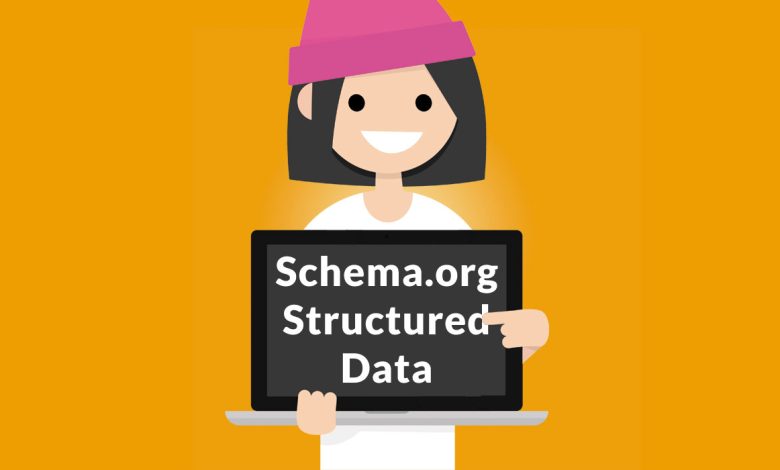
In a Google Webmaster Central Hangout, John Mueller offers valuable advice on the proper use of Schema.org structured data. He notes the differences between available options at Schema.org versus what Google uses for display purposes, and finishes with an interesting statement about how Google might use structured data to better understand entities.
Possible to Use Too Much Structured Data?
There are multiple ways to use Schema.org markup to communicate information about brick-and-mortar businesses and their locations. As long as they validate and contain all the information that Google currently uses, then it’s fine. And if you exceed what Google uses, that’s fine too.
“So sometimes there are different ways of doing the same thing. Sometimes there is Schema.org markup that we kind of accept but we don’t use it for anything within search and obviously the validation tool will say that, ‘Oh this is fine…’ ”
That’s really useful information because Schema.org provides a way to communicate a lot of information about a website, and if you go about copying how other businesses do it, you may end up providing more information than you need to.

Trust Google’s Schema Developer Page
If your concern is how Google uses Schema markup, then the ultimate authority for Schema Markup is Google, not Schema.org. Schema.org structured data has more options than are in use at Google for display purposes. Google doesn’t use everything that is specified at Schema.org. Here is what he said:
“I recommend looking at the search developer documentation and picking from those types that are in there which actually make sense for your individual pages.”
Mueller says it comes down to the ROI of how you use your time, whether what you put into it exceeds the benefits on the other end at Google, if what you’re coding is superfluous and will not be displayed in Google’s SERPs.
“If you’re limited with the amount of time that you have available, you don’t just like take all of your pages and mark up all of the entities. You kind of have to focus on what actually provides value for you.
So that’s one thing where like we don’t mind if people markup more on their pages than we actually show directly in the search results but it’s not the case where you’ll see a real clear kind of reaction based on that.”

Schema.org as a Quality Factor?
Mueller offered clarification about adding data that might not be used for display purposes, in response to a follow-up question asking for clarification. The question was asking to clarify if adding more information than will show in the SERPs can serve some other SEO purpose or if it doesn’t show in the SERPs then it’s wasted time. Here’s the question:
“So if you have Schema markup… is it one of those things where generally can be an indicator of a site that’s more optimized or is it generally just it’s either going to help you appear on a rich snippet or it’s not (and it’s really a moot point otherwise).”
John Mueller starts out by saying that there is no “quality factor” associated with whether Schema structured data exists on a page, like extra points for having it:
“We don’t use it as a quality factor, so it’s not like we would say that this site has Schema markup, therefore it’s a better site.”
Google’s Use of Structured Data For Entities
He then elaborates even further with information that I thought was very interesting because it indicates that Google might use some information in ways outside of display purposes for understanding entities. Here is his complete statement:
“But sometimes we can recognize entities better if you markup entities on a page. Which is kind of a more flexible type thing where if someone gives a really long query to us and we recognize, Oh, they’re asking us about this entity and not using exactly those words and we know this other page is also about this entity, maybe doesn’t use exactly the same words, that we can still match. That helps us to try to find more relevant results together.”
Schema Markup and Entities
Schema.org markup allows you to indicate a variety of entities such as a specific author, the kind of content (blog post, review, article), and so on. An entity is generally something specific and can be thought of as similar to what is defined as a noun: a person, place, or thing. Here are a few examples from Google’s Schema Structured Data Developer pages.
Product Entities
Knowledge Graph Card Entity
Specific Local Business
A Specific Recipe Entity
Just Because Schema Validates Doesn’t Mean Google Will Use It
Google’s Structured Data Markup Tool validation should not be taken for confirmation that the markup will be used by Google search. Just because your structured data markup validates does not mean that the structured data is something that will be used in any way within Google search.
“So I recommend looking at the search developer documentation and picking from those types that are in there which actually make sense for your individual pages.”
Mueller indicates that it’s okay to try to add in Schema structured data that might be helpful, but if the developers page doesn’t indicate it’s being used by Google then it’s possible Google won’t be using it.
“Some people try to look ahead and say well, this markup might be really useful for voice-based assistance for example and they might say well, I suspect Google will start using this kind of markup maybe next month, maybe in half a year and they’ll start implementing that ahead of time so I think that’s something you could definitely kind of bet on these things but it’s kind of hit and miss. Maybe we will, maybe we won’t.”
Learn about the different ways Google uses structured data for display purposes.
Watch the Google Webmaster Hangout discussion about Schema.org.
Featured image by Shutterstock, modified by Author
Screenshots by Author


